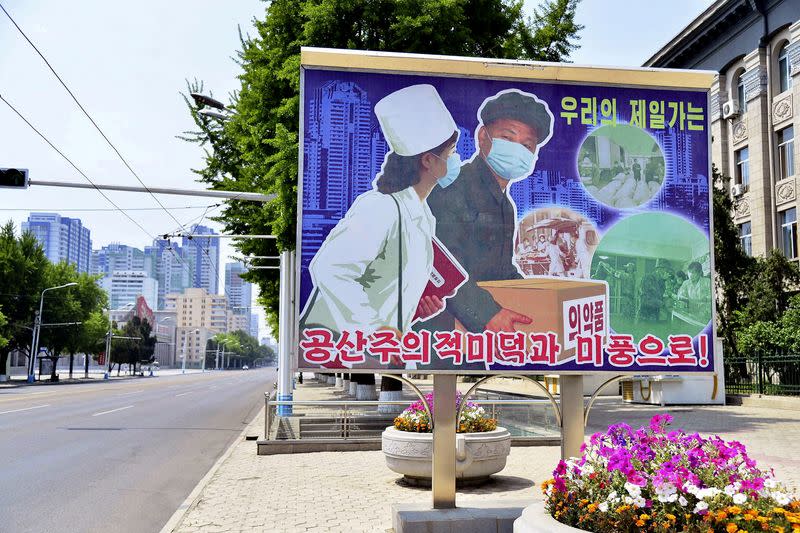SEOUL (Reuters) – North Korea on Thursday reported an outbreak of an unknown gastrointestinal epidemic, which could increase pressure on the health care system in the isolated country as it faces an unprecedented wave of COVID-19.
North Korean leader Kim Jong Un sent drugs to the western port city of Haeju on Wednesday to help patients suffering from an “acute intestinal epidemic” as quickly as possible, according to North Korean state media.
She didn’t say how many people were infected or what the disease was, but she’s referring to the digestive system.
“(Kim) stressed the need to contain the epidemic as soon as possible by taking coherent measures to quarantine suspected cases to fully limit its spread, and confirm cases through epidemiological research and scientific testing,” the agency said.
The reported outbreak comes as North Korea grapples with its first outbreak of COVID-19 infection. A state of emergency was declared last month over fears of a shortage of vaccines and medical supplies.
North Korea reported 26,010 more people with fever symptoms on Thursday, as the total number of fever patients registered across the country since the end of April reached 4.56 million. The death toll linked to the outbreak was 73.
Pyongyang has daily reported the number of fever patients, not COVID patients, and appears to be short of test kits. Experts also suspect that the figures released by the government-controlled media are under-reported.
North Korea said the COVID surge is showing signs of abating, but the World Health Organization contested Pyongyang’s claims earlier this month, saying it believed the situation was worsening.
(Reporting by Su Hyang Choi; editing by Lincoln Fest.)
–
 –
–
‘Proponent of the Internet. Student. Evil tweeter. Expert in amateur TV. Hipster-friendly maker.’
—- –


![War in Ukraine. Latest information on June 16 [papildināts 07:09] War in Ukraine. Latest information on June 16 [papildināts 07:09]](https://zinas.nra.lv/_mm/photos/2022-06/860px/568158_88f8245e9d.jpg)